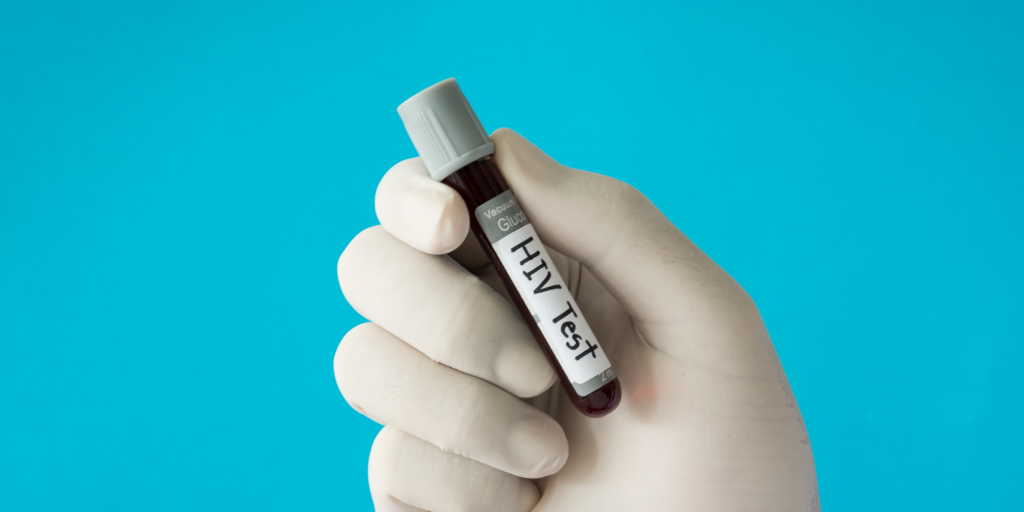
Human immunodeficiency virus (HIV) is a virus that weakens the immune system, making it difficult for the body to fight off infections and diseases. Early detection and treatment are critical in managing HIV and preventing the progression of acquired immunodeficiency syndrome (AIDS).

Getting tested for HIV is crucial for early detection which can significantly improve health outcomes and prevent the spread of the virus. This article will explore the various types of HIV tests, including the HIV 1 and 2 antibody test, HIV PCR test (HIV NAT test), HIV testing 4th generation, and the HIV viral load test, to help individuals understand the differences and make appropriate decisions about their health.
Direct go to
A Closer Look At The Different Types of HIV Tests
HIV 1 and 2 Antibody Test
The HIV 1 and 2 antibody test is designed to detect the presence of antibodies produced by the immune system in response to HIV-1 and HIV-2 infections. The HIV 1 and 2 test is usually performed using a blood sample and can provide accurate results within a few weeks of exposure. The HIV 1 and 2 test can detect HIV antibodies 23 to 90 days after infection.

HIV PCR Test (HIV NAT Test)
The HIV PCR test (HIV NAT test), is a highly sensitive diagnostic tool that detects the genetic material of the virus in the blood. The HIV NAT test is designed to identify the virus earlier than standard HIV tests. Instead of searching for antibodies, it detects HIV RNA in the bloodstream which enables the HIV PCR Test’s accuracy levels to be higher.
Early detection HIV tests boast a remarkable 95-99% accuracy rate when conducted 9-11 days following potential exposure. As the HIV PCR test’s accuracy is extremely high, this test is particularly useful during the early stages of infection when antibody levels may not be detectable.
HIV Testing 4th Generation
Both antibodies and antigens play crucial roles in the body’s immune system response to infections, including HIV. HIV Testing 4th Generation, also known as combined antigen/antibody tests, detect both HIV antibodies and the p24 antigen, a protein produced by the virus during the early stages of infection.
An antibody test identifies antibodies that the body generates in reaction to the virus, while an antigen test detects the p24 antigen, a viral protein produced soon after infection. Antigens can be identified as early as the 18th day following potential exposure.

Fourth-generation testing examines both antibodies and antigens, making it highly precise. HIV Testing 4th Generation can identify HIV in 99% of those tested after 18 to 45 days post-exposure. The HIV testing 4th generation is considered the gold standard for HIV testing due to its accuracy and ability to detect the virus in its early stages.
HIV Viral Load Test
The HIV viral load test measures the amount of HIV genetic material (RNA) in the blood, providing valuable information about the severity of the infection and the effectiveness of antiretroviral therapy (ART). This test is crucial for monitoring the progression of the disease and making adjustments to treatment plans. It is important to note that the HIV viral load test is not used for diagnosing HIV but rather for managing the condition in individuals who have already tested positive.
Conclusion:
In conclusion, understanding the different types of HIV tests, such as the HIV 1 and 2 antibody test, HIV PCR test (HIV NAT test), HIV testing 4th generation, and HIV viral load test, is crucial for early detection, proper management, and prevention of the virus’s spread. By understanding the various types of HIV tests available, individuals can make informed decisions and seek appropriate testing options.

A healthcare professional can provide guidance on the most appropriate test based on each individual’s unique situation and ensure that they receive accurate results and follow-up care if necessary. HIV counseling plays a vital role in helping individuals understand which test is right for them among the available options, such as the HIV 1 and 2 test, HIV PCR test (HIV NAT test), HIV testing 4th generation, or HIV viral load test. By seeking HIV counseling and getting tested, individuals can take charge of their sexual health. Ultimately, increasing awareness and understanding of the various HIV testing options can help
reduce the stigma surrounding HIV and encourage more people to get tested, leading to better health outcomes and a healthier society overall.
DrSafeHands offers confidential HIV Counseling, Testing, and Treatment. If you have any questions or concerns, don’t hesitate to reach out to our skilled and experienced professionals.
FAQs
Q 1: How does the HIV PCR Test (HIV NAT Test) work?
Answer: The HIV PCR Test (HIV NAT Test) detects the genetic material of the virus itself instead of antibodies, providing accurate results even during the early stages of infection.
Q 2: Are HIV tests painful or invasive?
Answer: Most HIV tests only require a small blood sample or oral swab, making them minimally invasive and generally not painful.
Q 3: Can I trust the results of an HIV test, or do I need to take multiple tests?
Answer: HIV tests are highly accurate, but it’s essential to follow the recommended testing guidelines, which may include confirmatory tests, to ensure the most accurate results.
Disclaimer: This website may contain general information relating to various medical conditions and their treatment. Such information is provided for informational purposes only and is not meant to be a substitute for the advice provided by a doctor or other qualified healthcare professionals. Readers should not use the information contained herein for diagnosing a health or fitness problem or disease. Readers should always consult with a doctor or other healthcare professional for medical advice or information about diagnosis and treatment.
